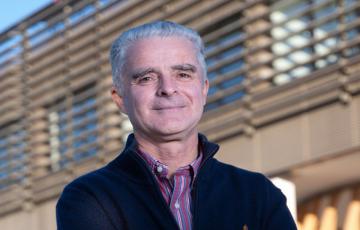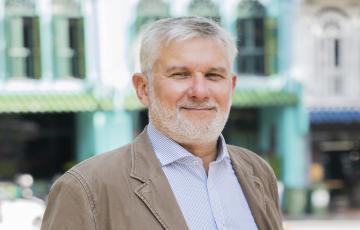Corporate occupiers and regional stakeholders publish a prospective study on the future of the workplace
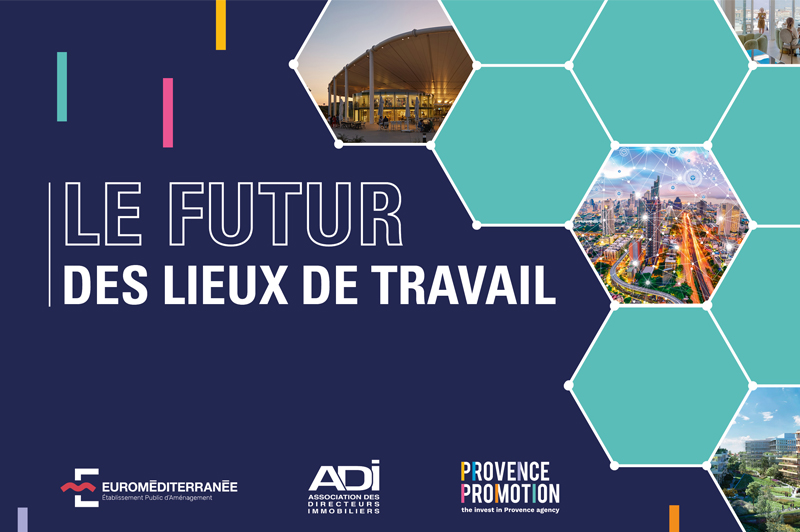
A publication resulting from more than a year of work to gather the views of 40 experts
On Tuesday, September 21, 2021, the publication of a collective perspective on the future of workplaces, backed by Provence Promotion, the Association des Directeurs Immobiliers (ADI) and Euroméditerranée, was officially released at a press conference in Paris.
The work was initiated at the end of the first lockdown and highlights the lessons of the pandemic, which disrupted our working methods, but also of fundamental movements which had started long before. Major users, developers and investors of corporate real estate shared their opinions on the transformations to come, including the diverse range of workplaces, managerial changes and employee expectations. The publication takes a cross-disciplinary approach, with examples of projects throughout France and in the Aix-Marseille-Provence metropolitan area.
Several months before the pandemic, Provence Promotion approached ADI and Euroméditerranée with the proposition of collaborating on a case study analyzing workplaces in the Aix-Marseille-Provence metropolitan area: the largest concentration of jobs in France outside the Paris region, with more than 800,000 positions and 150,000 establishments. The onset of the health crisis gave it new insight. The working angle was defined with Jacques Perpère, in charge of foresight at ADI, and some of his peers from large French groups as well as with the living lab at thecamp, campus of the future.
For Gilles Allard and Jacques Perpère, Chairman and Secretary General of ADI respectively: “Large companies cannot simply refer to a framework resulting from legal stipulations or negotiations with social partners. The regions themselves are essential partners in meeting the expectations of employees in terms of the workplace. Reducing the carbon footprint of our working methods is also a major issue that must unite us.”
Thus, in September 2020, between two lockdowns, the first seminar for “Imagining the future of the workplace” was held at thecamp. The aim was to collectively reflect on the new functions of corporate real estate in the context of changes brought about by the aspirations of new professional generations, the ecological transition and of course the massive increase in teleworking since the health crisis.
The Aix-Marseille-Provence metropolitan area has emerged as an exemplary case for this project, bringing together several real estate managers from the largest French employers as well as key economic players in Aix-Marseille-Provence, such as Euroméditerranée; the Aix-Marseille-Provence metropolitan CCI; the Port of Marseille-Fos; Marseille Provence Airport; and Aix-Marseille University, but also investors such as Primonial, leader in the transformation of city centers in Europe; Interxion, world leader in data centers; and construction giant, Eiffage.
“The Aix-Marseille-Provence metropolitan area is all the more attractive as it will make it easier for companies to organize themselves differently and establish new working methods,” explains Bernard Deflesselles, President of Provence Promotion.
Concrete examples of new workplaces in Provence
The Theodora campus, the Smartseille eco-district, the Colbert Post Office building and the new Voyage Privé head office were studied during this analysis. It was clear that the Covid crisis accelerated approaches already initiated to mix functionalities and meet the needs of employees more easily.
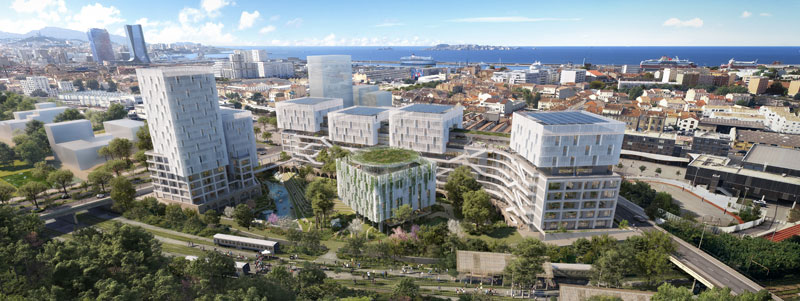
Thus, the futuristic project sponsored by Jaguar Network, a subsidiary of the Iliad group, plans to build a network of campuses in Marseille, Aix-en-Provence, Istres and Aubagne linked by autonomous vehicles. It also plans to bring together in one place both hyper-connection infrastructures and global digital networks, offices, coworking spaces, places of learning and training, but also spaces dedicated to relaxation and other services (restaurant, gym, dry cleaning, pharmacy, etc.). There’ll also be housing!
This forward-looking work features a series of new employee expectations, particularly in the area of teleworking, and examines the important question of how to maintain a balance between company performance and flexibility for employees while maintaining social ties. It takes stock of these economic and societal issues, as well as themes such as the flex office, phygital activities, and of course hyperconnectivity, a key asset for a region and its companies that wish to continue with remote working practices whenever possible.
Relationship between working methods and corporate real estate
While independent entrepreneurs, often from the digital sector but also from the cultural and artistic world, have invested in coworking spaces for several years, these pioneers are now being joined by nomadic workers, and even nomadic teams from the same company. We are thus witnessing the emergence of trend known as “corpoworking” or “proworking”: privatized spaces within shared offices. It is an option appreciated by some real estate managers as it balances out the rigidity of traditional leases.
While these spaces offer an alternative way to work remotely, they still need to be networked together throughout the region and close to transport links and motorway access points, to connect them to the regional agencies or head offices of companies looking to change their working methods.
Several decision-makers involved in the reflection project anticipate this development. Some real estate managers believe that the offices of the future will promote group emulation, the feeling of belonging to a corporate culture, and sharing and conviviality. Some companies are already redesigning their premises with smaller but optimized space, more areas for collaborative work and more meeting rooms.
Regions with a role to play
Geographical attractiveness remains relevant and each region will have its place in this new organization of working methods, provided it is properly connected. Paris and the city centers of metropolises should remain popular with the younger generations while families will appreciate working in remote offices in medium-sized cities close to their homes. This new organization will require a period of adaptation for management teams who are not opposed to the idea.
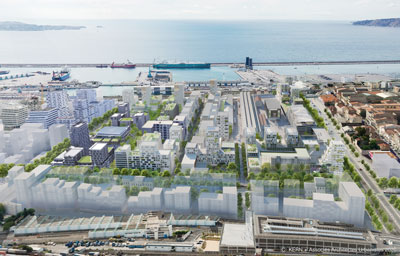
Business districts will retain their attractiveness by hybridizing their urban zone. The Euroméditerranée urban planning body in Marseille is implementing an offering of office spaces coupled with accommodation, shops, communal areas and green spaces.
“The project will be able to offer intergenerational working environments that bring together residents of all ages from the same building - professionals and university students will be able to share a co-working space outside their homes,” explains Hugues Parant, Managing Director of Euroméditerranée.
Lastly, the issue of human resources is addressed in a separate chapter of the publication, constituting a real challenge for the future and a core element of this new paradigm.
> Read their testimonies and discover how the organization and real estate of companies is facing these evolutions (in french only)


 +33 4 96 11 60 00
+33 4 96 11 60 00






